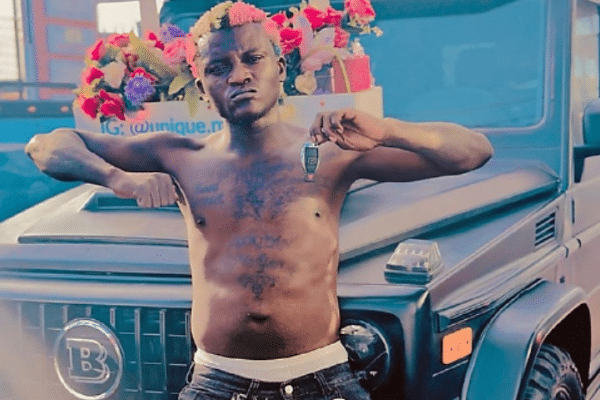The Nigerian music scene, vibrant and often controversial, witnessed another public feud unfold between street-pop artist Habeeb Okikiola, known as Portable, and social media critic Martins Otse, known as VeryDarkMan (VDM). The clash, ignited by Portable’s criticism of VDM’s attacks on President Bola Tinubu’s administration, quickly escalated into a heated exchange of online diss tracks and verbal jabs, capturing the attention of a large online audience. The conflict took a dramatic turn when an undisclosed party offered Portable ₦100 million (approximately $130,000 USD based on current exchange rates, though official rates can fluctuate) to physically confront VDM. Portable, however, rejected the offer, deeming it insufficient and demanding a staggering ₦1 billion (approximately $1.3 million USD) to engage in a physical altercation.
Portable’s rejection of the substantial ₦100 million offer underscores the singer’s perception of his own market value and the intensity of the conflict with VDM. His claim that such an amount is regularly gifted to him by fans, while potentially exaggerated, highlights the singer’s cultivated image of a popular and financially successful artist. This perceived financial independence allows him to leverage the situation, demanding a significantly higher sum and framing the potential fight as a business transaction rather than a personal grudge. By setting such a high price, Portable effectively controls the narrative, portraying himself as someone who is not easily swayed by money and whose time and reputation are valuable commodities.
The escalating feud between Portable and VDM provides a glimpse into the dynamics of online celebrity clashes and their potential for monetization. In the age of social media, where controversy often translates into views and engagement, such public disputes can become lucrative opportunities for those involved. Portable’s demand for a ₦1 billion fee suggests an awareness of this potential, transforming the conflict into a spectacle with a hefty price tag. This also raises questions about the ethics of monetizing online disputes and the potential for such practices to encourage further confrontations.
VDM’s criticism of the Tinubu administration, the initial trigger for the feud, adds a political dimension to the conflict. Portable’s defense of the president aligns him with a particular political faction, potentially further polarizing the online audience. While the specific details of VDM’s criticisms remain undisclosed in the provided text, the incident highlights how online platforms can become battlegrounds for political disagreements, with celebrities often taking center stage. This intersection of entertainment and politics blurs the lines between personal disputes and ideological clashes, potentially amplifying the reach and impact of the conflict.
The involvement of an undisclosed third party offering a substantial sum for a physical confrontation adds another layer of complexity to the situation. The motivations of this party remain unclear, raising questions about whether the offer was genuine or a publicity stunt designed to further fuel the online drama. Regardless of the intent, the offer itself underscores the commodification of conflict in the digital age, where even physical altercations can become opportunities for financial gain and online engagement. This raises ethical concerns about the potential for such offers to incite violence and normalize the exploitation of personal disagreements for entertainment purposes.
The unfolding feud between Portable and VDM, fueled by online exchanges, political undertones, and the potential for financial gain, serves as a microcosm of the broader dynamics at play in the digital age. It highlights the blurring lines between entertainment, politics, and personal disputes, the monetization of online controversy, and the ethical dilemmas arising from these trends. The incident also raises questions about the role of social media platforms in amplifying such conflicts and the responsibility of individuals to engage responsibly in online discourse. As online platforms continue to evolve, so too will the nature of these public clashes, demanding further scrutiny and critical analysis of their impact on society.


